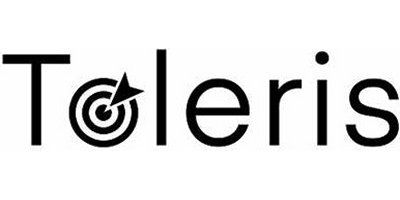

- Home
- Companies
- Toleris Biotherapeutics GmbH
- Products
- Toleris - Model AIM Bio - Autoimmunity ...
Toleris - Model AIM Bio - Autoimmunity Modifying Biologicals for Targeted Immunological Tolerance
AIM Bio has developed a platform of Autoimmunity Modifying Biologicals (AIM Biologicals) that uses soluble, near-physiological proteins to induce selective, antigen-specific immune tolerance. These proteins mimic a natural process observed in pregnancy that protects the embryo from the maternal immune system. By leveraging optimized soluble versions of the non-classical MHC Ib molecule HLA-G, AIM Biologicals can accumulate in lymph nodes to induce regulatory CD8+ T cells that protect tissues presenting autoantigens attacked in autoimmune diseases. This targeted approach contrasts with traditional immunosuppressants that broadly inhibit immune functions, risking opportunistic infections. AIM Biologicals focus on directing tolerance towards organ-specific autoantigens, thereby avoiding interference with the beneficial immune responses to pathogens. They are engineered to exploit natural immune tolerance mechanisms to stop autoimmune disease progression while minimizing side effects and maximizing therapeutic potential. Studies in model systems have shown promising results in inducing antigen-specific tolerance and reducing autoimmune symptoms.
Autoimmunity Modifying Biologicals (AIM Biologicals) are soluble, near-physiological proteins capable of inducing selective, antigen-specific immunological tolerance in an organ of choice. They mimic a natural principle to protect embryos from the maternal immune system. Autoimmune diseases are driven by rare autoantigen-specific T cells that recognize autoantigens presented on classical MHC molecules. This leads to direct attacks on healthy organs, secretion of pro-inflammatory cytokines or activation of other immune cells such as autoantibody-producing B cells. Immunosuppressants inhibit both autoreactive T cells and protective immune functions (Fig.1 1). Thus, doses required to fully stop progression of the autoimmune disease (Fig.1 3) would greatly increase the risk for severe opportunistic infections (Fig.1 4).
We discovered that soluble variants of the non-classical MHC Ib molecule HLA-G accumulate in lymph nodes where they induce selective immune tolerance towards the presented peptides. Induced regulatory CD8+ T cells can then protect tissues presenting their cognate antigen. Physiologically, this enables embryos to specifically tolerize the maternal immune system for fetal antigens expressed in placenta (Fig.2 1). AIM Biologicals use optimized HLA-G to induce similarly targeted and effective tolerance towards autoantigens attacked during autoimmune diseases (Fig.2 2). Successful tolerance induction against one tissue antigen also confers bystander protection when further autoaggressive T cells attack the tissue (Fig.2 3). Systemically, these therapeutics should not affect beneficial immune responses against pathogens (Fig.2 5). Thus, AIM Bios are expected to stop autoimmune disease progression (Fig.2 4) without promoting oppor-tunistic infections (Fig.2 6).
Autoimmune diseases
There are over 80 recognized autoimmune diseases. Approximately 10% of the world population are affected by these conditions. Common examples include type 1 diabetes (T1D), multiple sclerosis (MS), rheumatoid arthritis (RA), systemic lupus erythematosus (SLE) and autoimmune thyroid diseases. Autoimmune diseases are notable for their growing incidence and prevalence. They have significant economic and health impacts, contributing to morbidity and disability.
Treating autoimmune diseases poses substantial challenges, as current therapies often rely on generalized immunosuppression. While effective in reducing inflammation and immune-mediated damage, these treatments impair the body’s ability to fight infections. There is an unmet medical need for precision immunosuppressants, which selectively target pathogenic immune responses while preserving overall immune function. Successful therapeutic induction of antigen-specific tolerance thus has the potential to fundamentally change the treatment of autoimmune diseases.
Embryo-specific immune tolerance: learning from evolution
Most organ transplants require meticulous MHC matching and strong immunosuppressants to avoid rejection. Embryos expressing paternal MHC and antigens are, in contrast, selectively tolerated by the maternal immune system. This was attributed to the placenta acting as a physical barrier. However, we now know that fetal cells also circulate in maternal blood, where they can be isolated for prenatal genetic testing. Surprisingly, these cells are also tolerated by the maternal immune system. Studies in mice have even shown that paternal skin transplants are tolerated during pregnancy, while unrelated grafts are rejected.
Tolerance-inducing mechanisms developed under maximum evolutionary pressure to enable pregnancy. Harnessing a natural mechanism via near-physiological biotherapeutics offers several distinct advantages:
High Specificity: Selective tolerance induction as in pregnancy can result in a precise targeting of unwanted immune responses, minimizing side effects and eventual toxicity.
High Efficacy: By leveraging potent biological mechanisms, which are hard-wired in the human immune system, these therapies achieve significant therapeutic impact.
Human Compatibility: The risk of immunogenicity and adverse immune reactions are expected to be low for almost or completely human-identical biologicals.
Broad applicability: Feto-maternal immune tolerance requires tolerization towards a multitude of paternal antigens (including often three major MHC mismatches). Tolerizing biomolecules thus have to be flexible enough to direct tolerance towards specific target proteins or cells. This could best be achieved by combining a specificity- with a tolerance-inducing signal. Such a combination would be broadly applicable for therapy.
The non-classical MHC Class Ib Molecule HLA-G
Among the numerous immunoregulatory molecules involved in immune tolerance during pregnancy, MHC class Ib molecules are of particular interest. While known to be potently immunosuppressive, they also present peptide antigens (PMID: 28904123). This antigen-presenting function would allow selective tolerance induction towards embryo-derived peptides without inhibiting immune responses to pathogens.
HLA-G is the main pregnancy-associated non-classical major histocompatibility complex (MHC) class I molecule. Unlike classical MHC molecules, it shows only very limited polymorphism and is primarily involved in immune tolerance (PMID: 18249584). HLA-G is expressed in both membrane-bound and soluble forms. Toleris scientists have shown that soluble HLA-G can stick to the surface of antigen-presenting cells (APCs), where it remains functional. It is highly expressed in the placenta, where it plays a key role in protecting the fetus from maternal immune rejection (PMID: 18249584).
